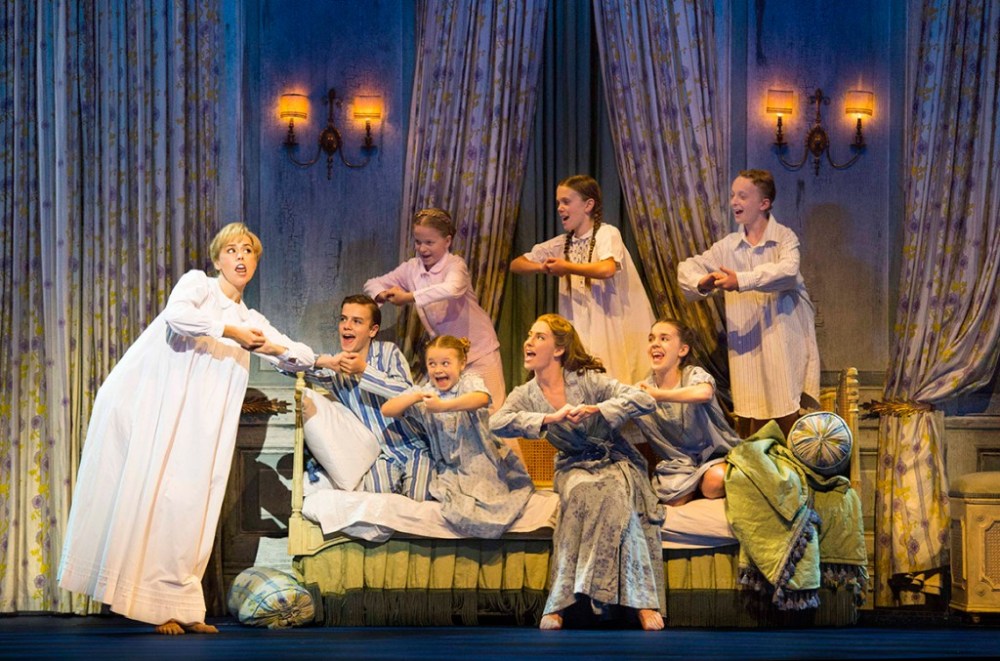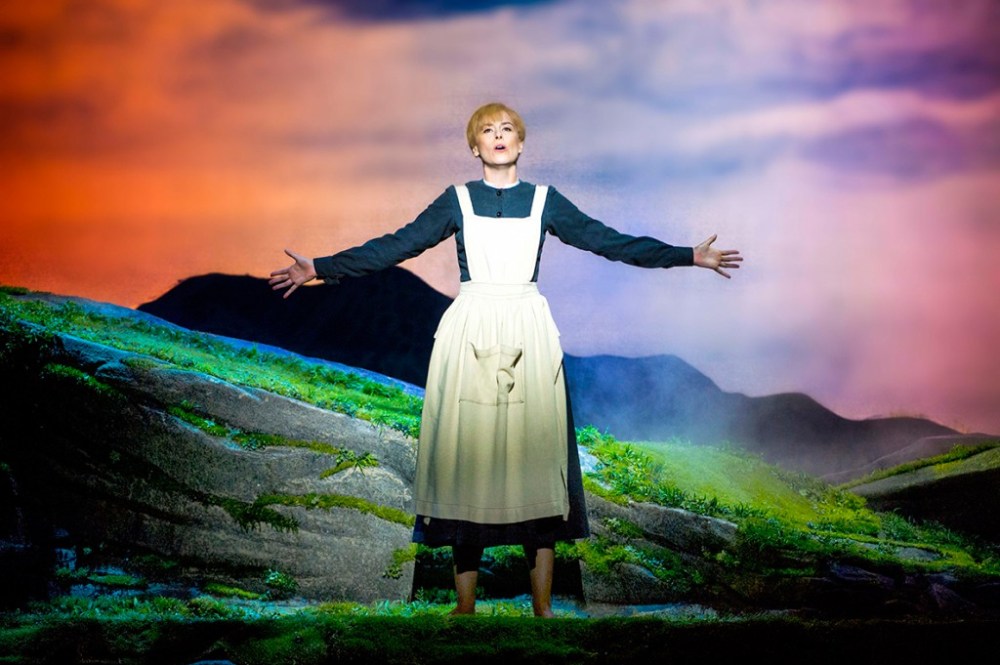Capitol Theatre, Sydney, December 17.
A new production of Fiddler on the Roof has just opened in New York, directed by Broadway revival rainmaker Bartlett Sher. The musical, created in 1964, tells of the existential threat faced by a community of Jews in Imperial Russia, whom we see living their lives much as their ancestors did – Tradition! – while having to face the realities of contemporary society and politics. At the end we see them forced to leave their home of Anatevka to go – where?
Sher gave Fiddler a silent frame that, very briefly, brings the mass exoduses of today to mind. He hasn’t changed the work but has given it a context. What happened to Tevye’s community isn’t locked away safely in the past. “We have to ask questions about where we are now,” Sher told The New York Times. Sher’s touch has also been applied to revered Rodgers and Hammerstein musicals including South Pacific and The King and I, both of which have dark themes embedded within. Sher is able to stage a traditional version while reminding audiences that these shows aren’t entirely about washing a man right out of your hair and whistling a happy tune, no matter how tenaciously the glow of nostalgia hangs around them.

In The Sound of Music there are raindrops on roses, whiskers on kittens, bright copper kettles and Nazis at the door. In other words, there is, in Rodgers and Hammerstein’s last work a dark counterpoint that gives weight, texture and dramatic consequence to songs of unmatched sweetness.
It is wondrous just how lacking in cynicism, irony and guile the show’s most beloved songs are, but The Sound of Music is not all Do-Re-Mi, or shouldn’t be. It doesn’t seem enough in 2015 to give the impression the Nazis were a bunch of cartoonish heavies. One of the greatest evils of the 20th or any century is trivialised and the courage of the von Trapp family rendered far less affecting than it should be. The production now showing in Sydney, directed by Jeremy Sams, could have been teleported from 1959, when The Sound of Music conquered its first generation of admirers.
It’s true that Howard Lindsay and Russel Crouse’s book is perilously thin at times, in this respect and others, but in this production the flaws are magnified rather than resolved. It also doesn’t help that the sets, based on those for the 2006 London revival, have a strong whiff of having been reduced for ease of touring. When the Austrian alps are represented by an odd sloping disc, low-lying bumps and a lurid sunset you’re not exactly feeling the grandeur.
The old-school complacency is all the more frustrating because the show is blessed with some blazing performances. The enchanting Maria of Amy Lehpamer, Jacqueline Dark’s bounteous Mother Abbess and the eye-wateringly talented bunch of children raise the roof and save the day.

In Lehpamer’s hands the novice nun who brings music and love to an unhappy family is shiningly good without being a goody-goody. Forthright and sensible but with girlhood not long behind her, Maria is bursting with untapped promise. Lehpamer sings with delectable warmth, ease and clarity, makes the familiar sound fresh and gives backbone to songs that need a firm hand if they are not to descend into whimsy.
On opening night there was entrance applause for Cameron Daddo, who plays the widowed Captain von Trapp; Marina Prior, who is the Captain’s intended, Baroness Schraeder; and veteran Lorraine Bayly (Frau Schmidt). None greeted Lehpamer, who is well known to music-theatre aficionados but – obviously – not so much to a wider public. She has it in her to be Australia’s next big music-theatre star and this role should do the trick.
Most usually seen on the opera stage, where she is a great favourite, Dark plays the Abbess with a twinkly eye and enormous generosity of spirit and voice. What luxury casting. One could have predicted she’d hit Climb Ev’ry Mountain out of the park and so she does, not as a barnstorming anthem but a passionate invocation.
As for the children, the opening night girls and boys were all adorable (two more groups alternate in these roles) but if one must play favourites, Nakita Clarke as the baby of the family, Gretl, would take the prize. The others – Jude Padden-Row as Friedrich, Savannah Clarke (Nakita’s sister) as Louise, Louis Fontaine as Kurt, Madison Russo as Brigitta and Erica Giles as Marta – are also blissfully at ease on stage and there are some impressive voices among them. As the “sixteen going on seventeen” oldest sister Leisel, Stefanie Jones is pleasingly unaffected and has a fine, true soprano.
Prior makes the pragmatic Baroness Schraeder nuanced and interesting but Daddo isn’t up to the task of papering over some very dodgy transitions in the book. Because he doesn’t convey megawatts of authority, several underwritten turning points in the musical are put under a very revealing light. The Captain’s turnaround from distant martinet to caring father is achieved with a handful of harsh words from Maria and his declaration of love for the novice nun happens moments after Baroness Schraeder gives him back his ring. Daddo looks amazingly handsome but there is, sadly, little sizzle between him and Lepahmer of the kind that might have prepared us for this outcome.
The audience has to join the dots and take that relationship on trust because it’s not really there on stage. The political backdrop is similarly soft-edged and experienced at a safe distance despite the display of swastikas and men in uniform. I couldn’t help but compare this blandness with the shiver of horror John Bell evoked in his direction of Tosca for Opera Australia in 2013, which was set during the Nazi occupation of Rome. It’s all in the detail. It’s about making every new audience, every new generation, understand and believe in every aspect of a work, not just the raindrops on roses.
The Sound of Music runs in Sydney until February 28. Brisbane from March 11, Melbourne from May 13, Adelaide from August 9.
A version of this review first appeared in The Australian on December 21.
Have a happy & joyous Christmas Deborah Thank you for the terrific insights into live theatre and keeping it alive for us. All best wishes, Helen Mc
Sent from Samsung Mobile
Thanks Helen – much appreciated. And have a fabulous Christmas yourself. See you all refreshed and ready to go next year.
I appreciate especially your insights into Lindsay and Crouse’s book. The line that has always stuck with me, if memory serves, is early in Act Two, summing up the Anschluss: “Everybody’s cross these days.”
Thanks Peter! Have a great Christmas and fabulous 2016.